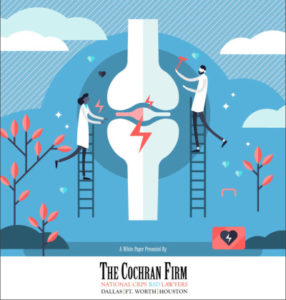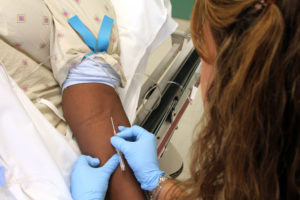North Carolina Teen Beats CRPS/RSD: Next Stop, NFL
When 15-year-old Nazair (Naz) Jones woke up on November 5, 2011, he could not move. Then after years of persistent pain, complete loss of control of the use of his limbs, and the loss of 50 pounds, the once-healthy, gifted athlete was diagnosed with complex regional pain syndrome/reflex sympathetic dystrophy (CRPS/RSD) and told he would have to learn how to walk all over again.
Using a cane, a walker, and eventually a wheelchair, Naz tried to stay positive and vowed that he would fulfill his lifelong dream of becoming a member of the North Carolina Tar Heels football team. After enduring weeks of daily physical therapy, rehabilitation, a battery of tests and treatments, and a six-week stint at the Ronald McDonald House in Chapel Hill, his condition gradually began to improve.
In May 2016, Naz was finally able to walk by himself and rejoined his AAU basketball team. By July, he was cleared to play football again and received a scholarship offer from the University of North Carolina. His last three seasons at UNC, Naz anchored the Tar Heels’ defensive line and in 2016 he accounted for 70 tackles and 2.5 sacks. During the recent NFL draft, the Seattle Seahawks selected him with the 102nd overall pick.
While Naz’s recovery was far from easy and he will likely be on medication for the rest of his life, he was able to take control over CRPS/RSD, something many others have not been able to do.
What is CRPS/RSD?
CRPS/RSD is a chronic neuro-inflammatory disorder affecting up to 200,000 individuals in the U.S. in any given year. CRPS/RSD commonly follows a musculoskeletal or nerve injury, surgery or immobilization, occurring when the nervous system and the immune system malfunction as they respond to tissue damage from some sort of trauma. The nerves misfire, sending constant pain signals to the brain.
CRPS/RSD symptoms vary in severity and duration. Studies of the incidence and prevalence of the disease show that individuals may recover gradually with time. In more severe cases, individuals may not recover and may have long-term disability. There is no cure for the condition, and it can only be managed. Naz serves as an inspiration to all of those with CRPS/RSD who struggle daily to combat the limiting effects of the condition and its life-changing impacts.



